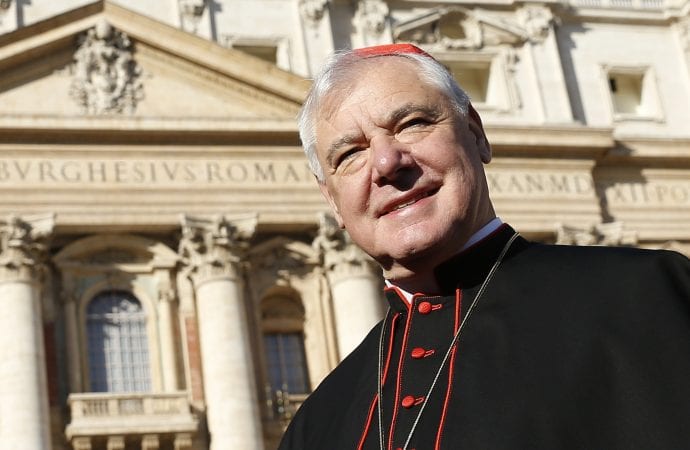How Cardinal Wuerl Misled the Papal Foundation, by Matthew B. O’Brien
April 17, 2019And the ‘Nones’ Have it – But Why? by Steve Jordahl
April 17, 2019
By Claire Giangravè, The Crux, Apr 15, 2019
ROME – In a new interview, the former top doctrinal official at the Vatican praised Pope Emeritus Benedict XVI’s recent statement on the clerical sexual abuse scandals and rebuked criticism that the pope did not write it himself or should not speak his mind.
Benedict XVI “has his style, he was helped by a secretary but intellectually he does not need help, because he has great experience and he remembers all those responsible for the fall of moral theology, which is one of the causes behind these abuses,” said German Cardinal Gerhard Ludwing Müller, former Prefect for the Congregation for the Doctrine of the Faith, in an April 14 interview with Italian news outlet Tgcom24.
Despite his 92-years of age, Benedict XVI “is lucid in his thought and in his reasoning, which as seen in that document, is very elaborate and profound,” the cardinal said.
“It’s an excellent service that he has made for the Church,” he continued, “the complaints that suggest that Benedict should stay quiet are not okay, everyone talks. Benedict is a giant of theology, he’s a bishop, a theology professor, he was Prefect of the Congregation for the Doctrine of the Faith. He has his say in the Church.”
“There are instead characters like Scalfari who are ignorant on theology and nonetheless speak,” Müller added referring to Italian journalist and former editor of La Repubblica, Eugenio Scalfari, known for his controversial interviews with Pope Francis lacking notes and audio recording.
In the emeritus pope’s 6,000-word essay written for a Bavarian periodical – his most extended public statement since his resignation more than six years ago – Benedict ascribed the clerical sexual abuse scandals to the sexual revolution of the 1960s and a post-Vatican II “collapse” in Catholic moral theology.
The letter argues that the scandals reflect a decline in faith in a personal God and garnered blowback from those who did not agree with Benedict’s diagnosis or saw it as a sign of a rift between Francis and Benedict.
“He made an excellent analysis of this issue,” Müller said. “It was better than other explanations and it was very deep because it comes from someone with great experience, who has been in Church government for over 50 years.”
The cardinal asked that everyone learn from the document to overcome the clerical abuse crisis, which he described as “a humiliation for the Church that represents Christ’s body,” and added that such behavior is unacceptable for pastors acting in the name of Jesus.
Regarding a contrast between Francis and Benedict, the cardinal said that “for a real Catholic this is impossible.”
“They are two different people, each different from the other and not in contraposition. Each pope has his mission that is serving the Church of St. Peter,” Müller said.
“I deny this false game of opposing the two people, we only have one pope who is Francis. The two collaborate, advise each other, but Benedict XVI is not the pope, he is a good adviser for all bishops,” he added.
“There is a lot of chatter with no theological basis,” the cardinal concluded, “everything is interpreted with political categories and not theological ones.”







